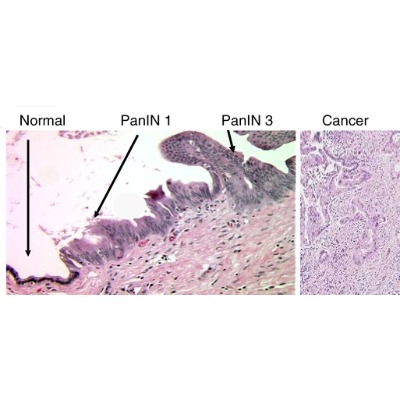
The identification of signals that indicate the presence of disease is challenging, but important. These signals (called biomarkers) could hold the key to the early diagnosis of pancreatic cancer. Drs. Zaret and Petersen from the Penn Institute for Regenerative Medicine and Mayo Clinic, respectively, have published a paper in Science Translational Medicine, describing a proposed group of bio-markers.
Pancreatic cancer is a cancer that often develops silently, with the patient hardly noticing any changes in their health. By the time the cancer begins rearing its ugly head, the prognosis is usually far worse—a disease that may have been treatable has become deadly. The bio-marker panel comes as a boon for those newly diagnosed or those with a genetic predisposition for the disease. One part of the panel, known as thrombospondin-2 (THBS2), “was screened against 746 cancer and control plasma samples using an inexpensive, commercially available protein-detection assay. The team found that blood levels of THBS2, combined with levels of a known later-stage biomarker called CA19-9, was reliable at detecting the presence of pancreatic cancer in patients”. Excitingly, “positive results for THBS2 or CA19-9 concentrations in the blood consistently and correctly identified all stages of the cancer.”
